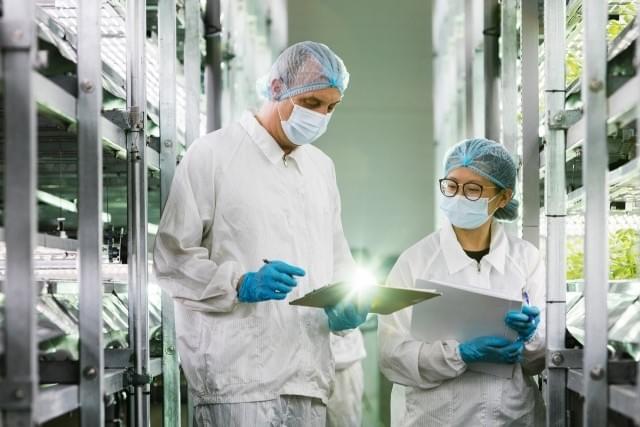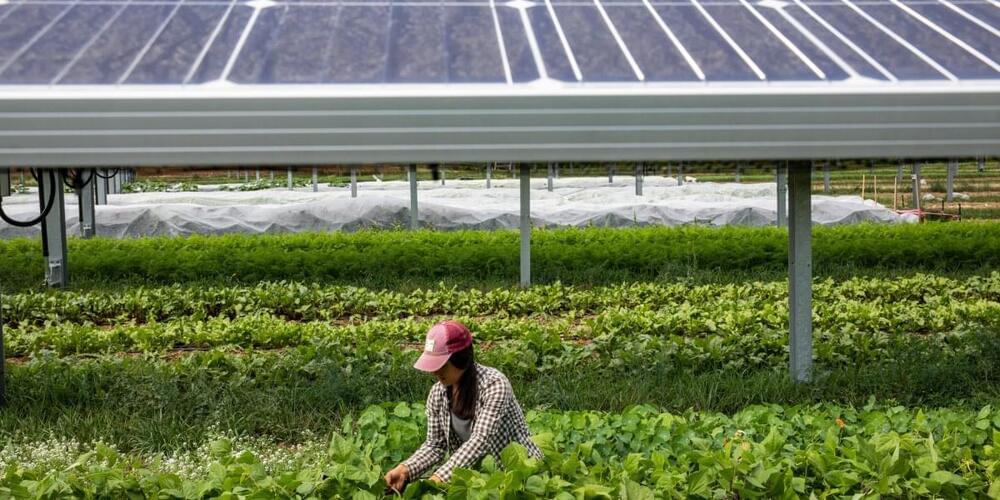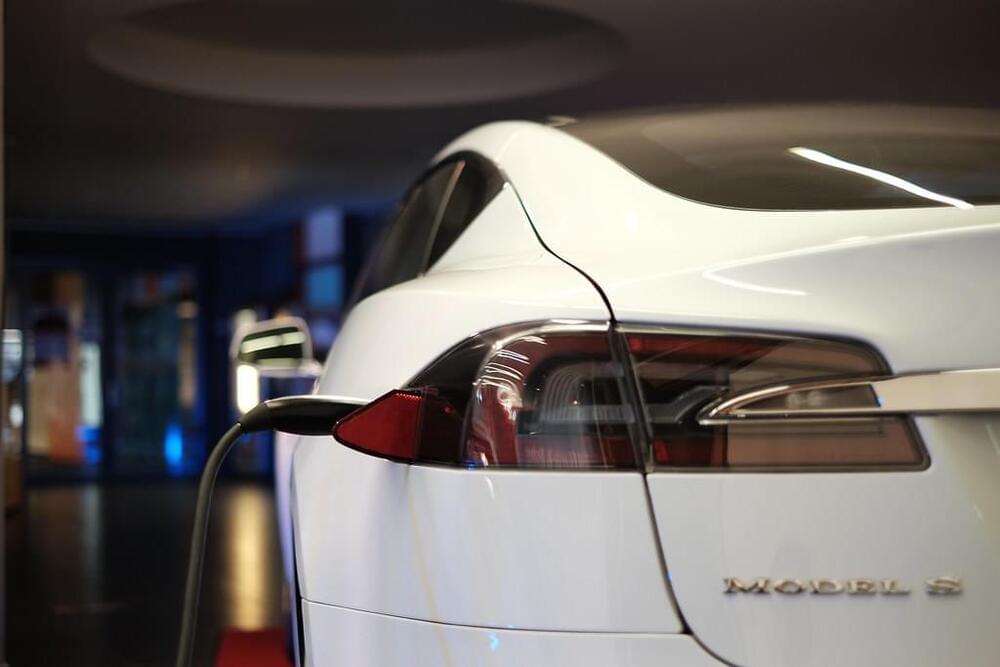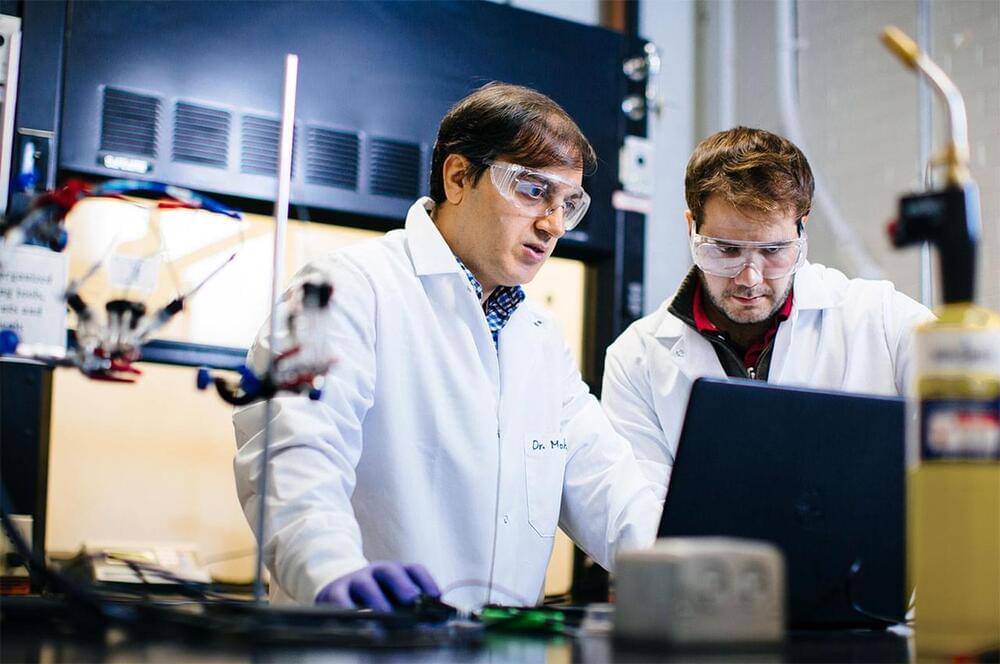Archive for the ‘sustainability’ category: Page 183
Dec 30, 2022
Electric vehicle batteries would have cost as much as a million dollars in the 1990s
Posted by Eric Klien in categories: sustainability, transportation
Most of us underestimate how quickly electric vehicles (EVs) will take over the car market. It’s mostly down to the plummeting cost of batteries. They have only become cost-competitive in the last few years and have fallen in price 98% since the 1990s. (99% if you include inflation.)
This gave me a combined series of the unit cost of lithium-ion batteries from 1991 to 2022 in $2022. I’ve plotted it as a chart here. And here is the logarithmic version.
Calculating the cost of EV batteries
Dec 30, 2022
Breakthrough in Lithium-air Batteries Could Help Put More Electric Vehicles On The Road
Posted by Quinn Sena in categories: chemistry, energy, engineering, sustainability, transportation
Year 2021 face_with_colon_three
Illinois Institute of Technology Assistant Professor of Chemical Engineering Mohammad Asadi has developed solutions to two major problems facing lithium-air batteries. Lithium-air batteries hold more energy in a smaller battery size than their more common counterpart, the lithium-ion battery, but until now, lithium-air batteries have been overlooked in commercial applications because lithium-air batteries tended to die after fewer recharges and require a lot more energy to charge than can be generated by the battery later.
After almost a decade working in the oil and gas industry, Asadi turned his focus to carbon dioxide in the atmosphere, particularly caused by the transportation industry, which consumes around 38 to 40 percent of the world’s energy. “With more widespread use of electric vehicles, you can drastically reduce transportation-based carbon emissions,” says Asadi. “But to put more electric vehicles on the road, we’ll need batteries—lots of them.”
Dec 30, 2022
Dubai has the ‘world’s largest’ vertical farm — is this the future of agriculture?
Posted by Shubham Ghosh Roy in categories: food, sustainability

Vertical farming grows more food in less space — with no pesticides. As Dubai opens the ‘world’s biggest’ vertical farm, is this the future of agriculture?
Dec 30, 2022
MIT’s zero-electricity cooling system could tackle the hottest regions of the world
Posted by Gemechu Taye in categories: climatology, sustainability
Claiming 3rd place, we look at how a zero-electricity cooling system could meet the world’s growing AC needs.
The fact that as the Earth warms, the technology needed by humans to stay cool will only make the environment hotter is one of the great ironies of climate change.
Here’s where a novel device unveiled by MIT researchers in October comes in.
Dec 30, 2022
A new head-up display could change how we drive in the future
Posted by Gemechu Taye in categories: sustainability, transportation

Continental has won the innovation award at CES 2023 for the seventh consecutive year.
Continental AG, the German developer of pioneering technologies in mobility, has been picked to receive the Innovation Award for its Scenic View Heads-Up Display (HUD) at CES 2023, the company said in a press release. The CES is a technology trade show held in Las Vegas in January every year.
Continue reading “A new head-up display could change how we drive in the future” »
Dec 30, 2022
World’s largest laser used to initiate groundbreaking fusion reaction
Posted by Gemechu Taye in categories: nuclear energy, sustainability
This is a historic milestone in the quest for a clean nuclear energy source.
Scientists at Lawrence Livermore National Laboratory in California have made a major breakthrough in the field of nuclear fusion, sparking hope for a new carbon-free power source.
How did they do it?
Continue reading “World’s largest laser used to initiate groundbreaking fusion reaction” »
Dec 30, 2022
BMW will reveal its new Vision Car concept at the CES 2023
Posted by Gemechu Taye in categories: sustainability, transportation
The new concept car will be “electric, circular, and digital.”
The future BMW plan calls for a large number of new electric vehicles. The company already has a strong portfolio of electric vehicles, but its new platform will only be focused on electrification.
BMW CFO Dr. Nicolas Peter previously announced at the end of the Q3 2022 quarterly report that BMW will unveil a new Vision Car at the upcoming CES 2023. “The next highlight on our way to the Neue Klasse will follow in January 2023. At the CES in Las Vegas, we will be presenting a visionary vehicle that will underpin our digital expertise. The future of the BMW Group is electric, circular, and digital,” Peter said.
Dec 30, 2022
US startup wants to inject sulfur into the atmosphere to cool down the Earth
Posted by Gemechu Taye in categories: chemistry, climatology, engineering, particle physics, space, sustainability

In theory, it could mitigate the effects of global warming; but experts are wary.
Make Sunsets, a California-based startup, released weather balloons that carried sulfur particles into the stratosphere which possibly burst there, releasing the chemical, MIT Technology Review.
Continue reading “US startup wants to inject sulfur into the atmosphere to cool down the Earth” »
Dec 29, 2022
Watch the latest water satellite unfold itself in space
Posted by Saúl Morales Rodriguéz in categories: satellites, solar power, sustainability

The Surface Water and Ocean Topography (SWOT) satellite launched into Earth orbit on Friday, Dec. 16, from Vandenberg Space Force Base in central California, and engineers are working to prepare the mission to begin measuring the height of water on over 90% of Earth’s surface, providing a high-definition survey of our planet’s water for the first time.
But before it can do that, the satellite would need to unfold its large mast and antenna panels (see above) after successfully deploying the solar panel arrays that power the spacecraft. The mission monitors and controls the satellite using telemetry data, but it also equipped spacecraft with four customized commercial cameras to record the action.
Continue reading “Watch the latest water satellite unfold itself in space” »













